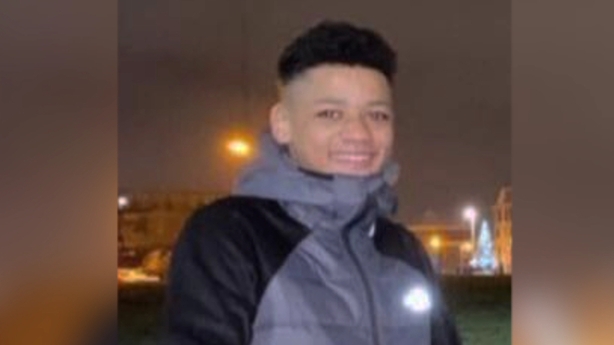A jury in the trial of a food delivery cyclist who stabbed teenager Josh Dunne to death will return to the Central Criminal Court tomorrow to continue their deliberations.
George Gonzaga Bento's lawyers have argued that he was acting in self-defence when he stabbed three people, including 16-year-old Josh Dunne.
The trial heard that Mr Bento and his friend Guillherme Quieroz followed a bike thief through Dublin 3 but when they tried to retrieve the bicycle they were attacked by a gang. The trial heard that Josh Dunne was among a group of teenagers who got involved and Mr Bento stabbed him, causing his death.
Mr Bento (36), a Brazilian national with an address in East Wall in Dublin 3, is charged with murdering 16-year-old Josh Dunne (below) at East Wall Road, East Wall, on 26 January 2021.

Mr Bento is also accused of producing a utility knife in a manner likely to intimidate another in the course of a dispute or fight. The defendant is further accused of assault causing harm to two other young men on the same occasion. The delivery cyclist has pleaded not guilty to each of the four counts.
The jury has spent almost six hours considering their verdicts. This afternoon they told the trial judge Mr Justice Paul Burns that one of the jurors wanted to know if the charge in relation to producing a knife related to the moment Mr Bento took the utility knife from his pocket or the moment when he opened the blade.
Mr Justice Burns told them that the offence can relate to an opened or unopened knife. "The important point is whether it was done in a manner likely to unlawfully intimidate another person," he explained.
The judge previously told the jury that there are three possible verdicts in relation to the murder charge: guilty of murder; not guilty of murder but guilty of manslaughter; or not guilty.
For a jury to accept self-defence, Mr Justice Burns said, it must be reasonably possible that the accused honestly believed his actions were necessary. He told the jury to consider what threat Mr Bento faced and if he honestly believed himself or his friend to be under an attack that made it necessary for him to defend himself or his friend.
If the jury finds that it is reasonably possible that Mr Bento used no more force than was reasonably necessary he is entitled to a full acquittal, the judge said. He added: "If he uses no more force than was reasonably necessary then he has acted lawfully and is not guilty of any offence."
He asked the jury to consider if the threat was imminent and whether Mr Bento had an opportunity to retreat.
If the jury finds that Mr Bento used excessive force but honestly believed the force used was necessary, then he should be found guilty of manslaughter and not murder.
If the prosecution has proved beyond reasonable doubt that Mr Bento was not acting in self-defence and did not honestly believe that the force he used was necessary to protect himself or his friend then he should be found guilty of murder.
Their decision on all counts must be unanimous, he said.

